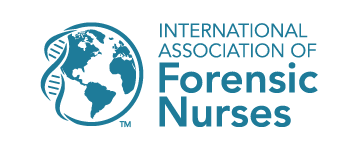Non-fatal Strangulation Toolkit Preface
Preface
In 1992, The International Association of Forensic Nurses (IAFN) was created by a group of nurses that recognized violence as a healthcare problem. Over the past two and a half decades much progress has been made as it relates to the care of our specialized patient population. Through this progress, knowledge has been gained and practice guidelines continue to evolve with the goal of continuous provision of safe and effective patient care.
In early 2015, the IAFN, the Board of Directors and a group of members recognized strangulation as a healthcare concern that needed practice guidance throughout the organization, and as a result, the Strangulation Task Force was created and was proven to be a group of hard working, dedicated individuals that are truly experts on strangulation. This group was tasked with establishing standards for the organization and developed what would be utilized as a toolkit for best practice provision.
The Strangulation Toolkit provides the forensic nurse with detailed guidance on assessment techniques, documentation, and evidence collection for this patient population. This toolkit also provides documents such as discharge instructions and sample policies that can be adjusted to best suit your institution and your forensic practice.
As a toolkit, it should be mentioned that the IAFN does not endorse any changes to these documents. Limitations of this toolkit include the lack of research available to guide our practice, making the need for additional research related to the management of the patient that has been strangled a high priority. Also, it should be mentioned that each clinician must refer to their own individual state practice acts when considering the implementation of any parts of this toolkit.
The Strangulation Toolkit is the first of its kind to be endorsed by the IAFN and will be a useful guide to improving and standardizing the care of patients that have been strangled. As a group, we will continue to strive to move our profession forward and improve practice internationally and this toolkit proves to keep us on this path.
